From a Kaunas classroom to the streets of Buenos Aires, a Vytautas Magnus University political science student gets a front-row seat to a nation’s radical “shock therapy” experiment.
In February 2024, as Lithuania remained in the grip of winter, Karolis Kasarauskas stepped off a plane in Buenos Aires and into a wall of 30-degree Celsius heat. The physical shock of the seasonal inversion was immediate, but it was merely a prelude to the profound socio-economic upheaval he was about to witness. Kasarauskas, a master’s student in political science from Lithuania’s highly-regarded Vytautas Magnus University (VMU), had arrived in Argentina for a semester abroad through the Erasmus+ exchange program. He landed just weeks after the inauguration of President Javier Milei, a radical libertarian economist who had promised to take a chainsaw to the state.
This was not a trip for tourism. For Kasarauskas, it was the culmination of years of academic study. Yet, what was planned as an observational semester quickly transformed into an immersive lesson in crisis. He had come to see how theory met practice. He found himself in the epicentre of one of the most audacious and brutal economic experiments in recent memory. “To see with my own eyes how much theory meets practice in the region – that alone made it worthwhile to visit Argentina,” he would later reflect.
His journey provides a unique Baltic perspective on a nation at a crossroads. Through his on-the-ground observations, a story unfolds—one that chronicles the collision of academic ambition with the raw, unpredictable reality of a country undergoing Milei’s “shock therapy.” It is a narrative that explores the tangible effects of radical policy, the resilient cultural fabric of Argentina, and the immense, evolving value of international education in an increasingly volatile world.
An Academic Quest Meets a Political Upheaval
Karolis Kasarauskas’s decision to study in Argentina was anything but arbitrary. It was a deliberate step in a long-standing academic pursuit focused squarely on the Western Hemisphere. His bachelor’s thesis had dissected U.S.-Brazil relations, and his master’s work delved into the competing interests of the United States and China in Latin America. The press release notes his desire to “spend time in the region and experience everything firsthand.” This was not the journey of a casual visitor, but of a dedicated scholar seeking to bridge the gap between literature and life.
When choosing his destination, practical considerations were paramount. He weighed options like Mexico, Colombia, and Brazil but ultimately settled on Argentina, citing its relative safety and the robust curriculum at the University of Belgrano in Buenos Aires. The university offered him a chance to study politics, history, and economics, and even to acquire a Latin American studies certificate. His choice was a calculated one, based on the promise of academic rigor in a stable environment where he could deepen his regional expertise.
The environment he found, however, was anything but stable. He had arrived in a living laboratory for a radical political ideology. In December 2023, President Javier Milei, a self-described “anarcho-capitalist” and staunch libertarian, had taken office with a mandate to dismantle Argentina’s decades-old economic model. The country was facing a chronic crisis, having defaulted on its debt nine times and accumulated the largest single debt to the International Monetary Fund (IMF) in the world. Milei’s solution was “shock therapy”: a rapid and severe program of austerity measures, state shrinkage, and the elimination of price controls.2 Within days of his inauguration, he had devalued the peso by over 50%, halved the number of government ministries, and initiated plans to slash tens of thousands of public sector jobs.2 The new administration also cut crucial energy subsidies and drastically reduced financial transfers to provincial governments and public universities.
This unforeseen political earthquake transformed Kasarauskas’s academic semester. The historical trends he came to study were being violently rewritten before his eyes. His planned research paper at the University of Belgrano, examining U.S.-Latin American relations during the Trump and Biden administrations, suddenly had a new, explosive contemporary context. Fortuitously, his assigned supervisor was not just a theoretician but a seasoned political practitioner. This mentorship provided Kasarauskas with a rare window into the country’s “informal” political practices—the unwritten rules, backroom negotiations, and personal networks that often hold more sway than official policy. In a nation where a top-down shock was dismantling formal structures, understanding this hidden grammar of power was no longer just an academic exercise; it was essential for comprehending the societal response to the crisis.
Navigating Daily Life in a Nation on Edge
The first signs of the systemic challenges ahead appeared long before Kasarauskas set foot in Buenos Aires. The process of securing a student visa was a lesson in the infamous Argentine “bureaucratism,” a prolonged affair that required two separate trips to the country’s embassy in Warsaw. Upon arrival, the logistical hurdles continued. Unlike many European universities, Argentine institutions typically do not provide student dormitories. He found lodging in a student apartment shared with other Argentines, a choice that immediately immersed him in the local reality rather than the insulated bubble of an expat compound.
He arrived in February 2024 to what he described as a “shock therapy period” marked by “quite a bit of chaos.” The abstract economic policies announced from the presidential palace had immediate, tangible consequences on the street. A prime example was the public transport reform. The government’s changes disrupted the issuance of the essential Sube travel card. Without this card, using the city’s buses and underground was simply impossible, as hyperinflation had rendered the use of cash for small transactions impractical. This single bureaucratic failure created a city-wide paralysis for many, a perfect micro-level illustration of a top-down reform causing widespread, bottom-up disruption. This personal inconvenience was a direct reflection of macroeconomic data showing that transportation costs had soared by 102.2% in the first three months of Milei’s presidency alone.
Perhaps the most disorienting daily challenge was navigating the country’s volatile currency. Kasarauskas had planned his budget around the long-standing “dual exchange rate,” a system where tourists and those with foreign currency could get significantly more pesos on the informal or “blue” market than at the official rate. However, Milei’s 54% devaluation of the peso in December 2023 and the subsequent lifting of currency controls had upended this reality overnight. The gap between the official and blue rates shrank dramatically, and suddenly, using a bank card became a cheaper option than exchanging cash. This rapid reversal underscored the extreme volatility of the economy, forcing him to “constantly follow the news” simply to manage his personal finances.
The data from this period paints a stark picture of the economic shockwave that Kasarauskas was living through.
| Indicator | Figure | Source Snippet(s) |
| Initial Peso Devaluation (Dec 2023) | 54% | Milei’s Shocks: Perfect Therapy for the Argentine Economy | Bruin Political Review, https://bruinpoliticalreview.org/articles?post-slug=milei-s-shocks-perfect-therapy-for-the-argentine-economy |
| Peak Annual Inflation (April 2024) | 289.4% | Argentina’s Economic Shock Therapy: Assessing the Impact of …, https://primeeconomics.org/articles/argentinas-economic-shock-therapy-assessing-the-impact-of-mileis-austerity-policies-and-the-road-ahead/ |
| Consumer Price Rise (Dec ’23 – Feb ’24) | 71.4% | Argentina’s Economic Shock Therapy: Assessing the Impact of …, , https://primeeconomics.org/articles/argentinas-economic-shock-therapy-assessing-the-impact-of-mileis-austerity-policies-and-the-road-ahead/ |
| Transportation Cost Increase (Dec ’23 – Feb ’24) | 102.2% | Argentina’s Economic Shock Therapy: Assessing the Impact of …, , https://primeeconomics.org/articles/argentinas-economic-shock-therapy-assessing-the-impact-of-mileis-austerity-policies-and-the-road-ahead/ |
| Poverty Rate Increase (H2 2023 to H1 2024) | From 42.5% to 52.9% | Milei’s Shocks: Perfect Therapy for the Argentine Economy | Bruin Political Review, https://bruinpoliticalreview.org/articles?post-slug=milei-s-shocks-perfect-therapy-for-the-argentine-economy |
| Real GDP Contraction (Projected 2024) | ~3.5% | Milei’s Shocks: Perfect Therapy for the Argentine Economy | Bruin Political Review, https://bruinpoliticalreview.org/articles?post-slug=milei-s-shocks-perfect-therapy-for-the-argentine-economy |
| Public Sector Job Cuts (Initial) | 70,000 | How Javier Milei’s “Shock Therapy” Is Transforming Argentina’s Economy – USFunds, https://www.usfunds.com/resource/how-javier-mileis-shock-therapy-is-transforming-argentinas-economy/ |
This table reveals the brutal paradox at the heart of Milei’s project. The austerity measures, while achieving Argentina’s first quarterly budget surplus in over a decade and causing monthly inflation to plummet from a peak of 25.5% to below 3% by late 2024, came at a staggering human cost. The poverty rate surged to a two-decade high, real wages fell, and the economy plunged into a deep recession. Kasarauskas’s semester coincided with this period of maximum pain, a time when the “benefits” of the shock therapy were abstract macroeconomic figures, while the costs were felt viscerally in every transaction and every empty stomach.
His own experience, however, was cushioned. As a European student with access to euros, he was shielded from the worst of the storm. He noted that he could order a large steak from a restaurant for about three euros—an affordable indulgence. This observation stands in stark contrast to the reality for millions of Argentines. During this same period, the price of beef steak in dollar terms rose by 42%, and many locals reported that they could no longer afford the national staple, resorting to cheaper minced meat or chicken if they were lucky. This divergence highlights a two-tiered reality, where fortunate foreigners could still find bargains amidst the collapse, while the local population bore the full weight of the crisis. Karolis was not just an observer; he was, by virtue of his currency, a privileged one.
Cultural Immersion Amidst Crisis
Despite the pervasive economic anxiety, the deep-rooted cultural identity of Buenos Aires remained a powerful and constant force. Kasarauskas quickly observed that, unlike more Indigenous-influenced South American nations such as Bolivia or Peru, Argentina—and particularly its capital—feels distinctly European. This is no accident of architecture, but a direct result of its history. Massive waves of migration, especially from Southern Italy in the late 19th and early 20th centuries, profoundly shaped the nation’s demographics, language, and traditions. “In Buenos Aires, you can sometimes feel like you are in Europe,” he noted, pointing to the heritage of many residents.
This European influence is most palpable in the city’s culinary landscape. While meat is the undisputed king of the Argentine kitchen, the preparations often carry an Italian accent. The national ritual is the asado, a social gathering centered around a barbecue of various meats, typically served with red wine. The cultural dominance of meat is so absolute that, as Kasarauskas recounted, a vegan friend visiting him had to compromise and adopt a vegetarian diet simply to find enough to eat. His own favorite dish, milanesa napoletana—a breaded steak topped with ham, cheese, and tomato sauce—is a perfect fusion of Argentine beef and Italian culinary tradition. Another potent example of this cultural blend is the country’s most popular cocktail: Fernet, a bitter Italian liqueur, mixed with Coca-Cola. The combination is so ubiquitous that, as Kasarauskas observed, it is a primary driver of the nation’s high consumption of Coke.
This cultural immersion was made possible by his foresight in studying Spanish before his trip. Despite the cosmopolitan feel of Buenos Aires, English is not widely spoken outside of tourist hubs. Fluency in the local language was essential for navigating daily life, from grocery shopping to engaging in casual conversations that offered deeper insights into the public mood. It was through these daily interactions that he could observe the subtle but significant impacts of Milei’s economic policies. Initially, he noted a stark price difference: local products, like the famously cheap steak, were affordable, while imported goods like Coca-Cola were comparatively expensive, a legacy of protectionist trade policies. However, as Milei’s administration began to cut import tariffs to open the economy, this dynamic started to shift, making foreign goods cheaper while the price of local production increased. In the price of a soft drink, one could witness the real-time reorientation of a national economic philosophy.
Amidst the chaos of currency devaluations and political protests, these cultural touchstones—the ritual of the asado, the Italian-inflected slang, the shared drink of Fernet-coke—provided a powerful source of social cohesion and normalcy. When the economic and political foundations of the country were shaking, these shared traditions acted as an anchor, a reminder of a collective identity that transcended the crisis of the day. The simple act of sharing a meal or a drink became a small but significant ritual of continuity in a time of radical, disorienting change.
A Baltic Perspective on Global Education and Risk
Karolis Kasarauskas’s journey from Kaunas to Buenos Aires was not just a personal endeavor; it was facilitated by a robust ecosystem of international education. The launchpad for his expedition was his home institution, Vytautas Magnus University. Established in 1922, VMU has cultivated a reputation as one of Lithuania’s most globally-oriented universities. It consistently receives high marks for its international outlook in global rankings and is considered a leader in internationality within Lithuania. The university’s liberal arts ethos encourages students to pursue interdisciplinary studies and gain global experience, supported by a vast network of over 800 partner institutions across 82 countries. This environment is precisely what nurtures and equips students like Karolis to undertake such ambitious international projects.
The vehicle for his journey was the Erasmus+ programme, the European Union’s flagship initiative for supporting education, training, youth, and sport. With a budget of over €26 billion for its 2021-2027 cycle, the program’s primary goal is to foster mobility and cooperation, allowing participants to improve their skills, gain intercultural understanding, and enhance their personal and professional development. Kasarauskas’s semester was therefore part of a large-scale, structured European project designed to build bridges and cultivate a global citizenry.
However, his experience highlights a dramatic evolution in what such an exchange can entail. The classic Erasmus narrative often involves discovering new cultures and languages in the relative stability of European capitals. Kasarauskas’s story is a testament to a new reality. His semester was a crash course in risk management, forcing him to navigate not only cultural differences but also acute political instability, economic collapse, and significant public health threats. He learned to heed practical advice: how to navigate the sprawling metropolis of Buenos Aires, which areas to avoid, and how to monitor the news for protests and transport strikes that could paralyze the city. The danger was not abstract; a colleague of his attending a protest had his wallet and phone stolen.
Furthermore, beyond the political and economic turmoil, a serious and underreported health crisis was unfolding. During his stay in early 2024, Argentina was experiencing a historic dengue fever outbreak. The country ranked second in the Americas for suspected cases, with a fourfold increase from the previous season. Kasarauskas recalled being “badly bitten” by mosquitoes but was fortunate to avoid contracting the disease, a risk that added another layer of precarity to his stay. This modern Erasmus experience forged a different set of skills than those acquired in a classroom—resilience, adaptability, and the ability to make critical decisions under immense pressure. These are precisely the “soft skills” that are increasingly valued by employers in a complex global economy.
This journey also illustrates a symbiotic relationship between the student and their institution. VMU’s investment in its international programs and its liberal arts framework created the conditions for Kasarauskas to embark on his trip. In return, his experience, once documented and shared—as in the very press release that prompted this article—brings back invaluable, real-world knowledge and prestige to the university. It validates VMU’s identity as a “globally-oriented institution” and provides a powerful, compelling case study for future students. This creates a virtuous cycle: the university empowers the student to explore the world, and the student’s experiences enrich the university’s academic culture and global reputation.
From Kaunas to Chaos: What Argentina Taught One Baltic Student About Power and Change
Karolis Kasarauskas went to Argentina to study the theory of political economy and found himself living inside its most extreme practical application. His semester abroad transcended the boundaries of a typical academic exchange, becoming a profound, multi-layered education in politics, economics, cultural resilience, and personal risk management. What was meant to be a capstone to his formal studies became an unforgettable lesson in the unpredictable, often brutal, realities of nation-building and ideological struggle.
His story is more than one student’s adventure. It is a testament to the enduring intellectual curiosity that drives young scholars from stable corners of the world, like the Baltics, to its most turbulent frontiers. It underscores the irreplaceable value of firsthand experience in an age of digital mediation and remote learning, reaffirming that some lessons can only be learned by being there.
Ultimately, Kasarauskas entered President Milei’s “laboratory” of shock therapy and emerged with far more than a Latin American studies certificate. He returned with an unparalleled, human-scale understanding of the complex consequences and immense costs of radical change—an education forged not in the quiet libraries of Kaunas, but on the vibrant, chaotic, and unforgettable streets of Buenos Aires.


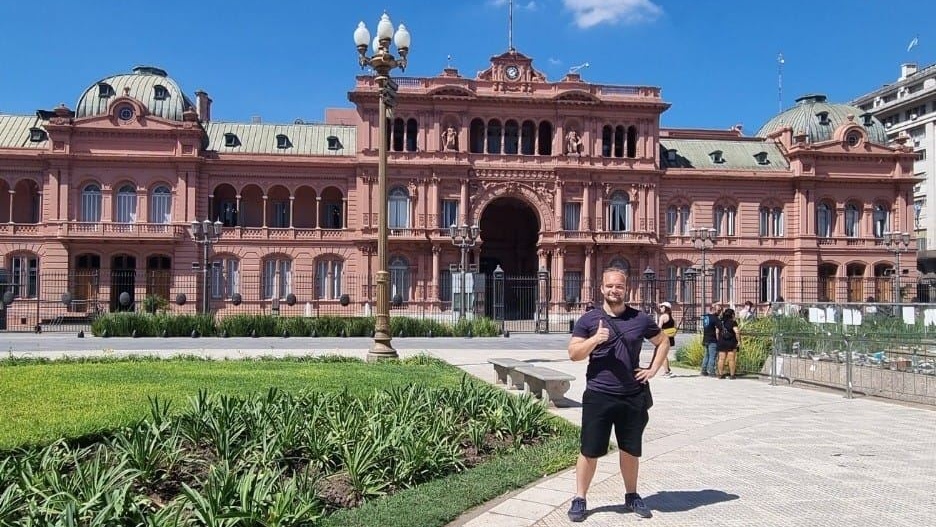
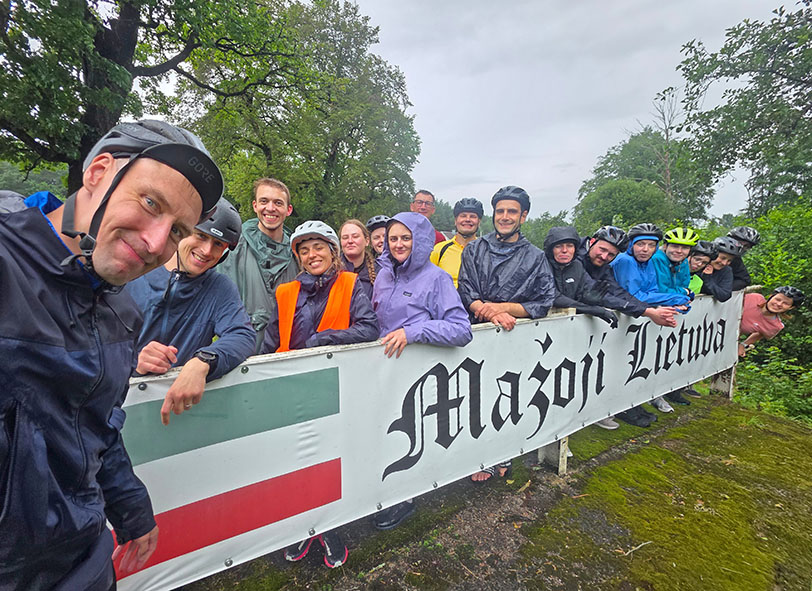
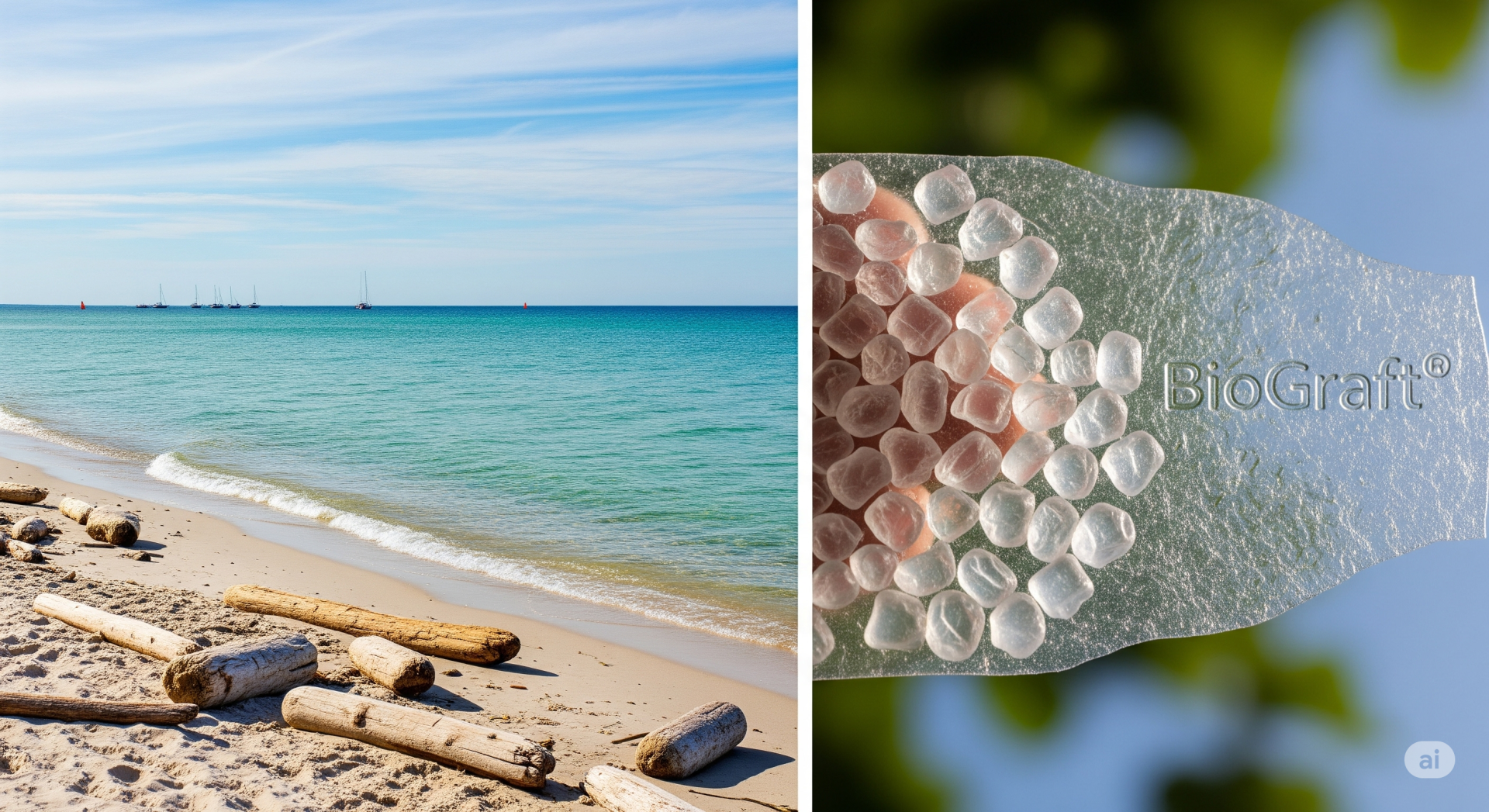
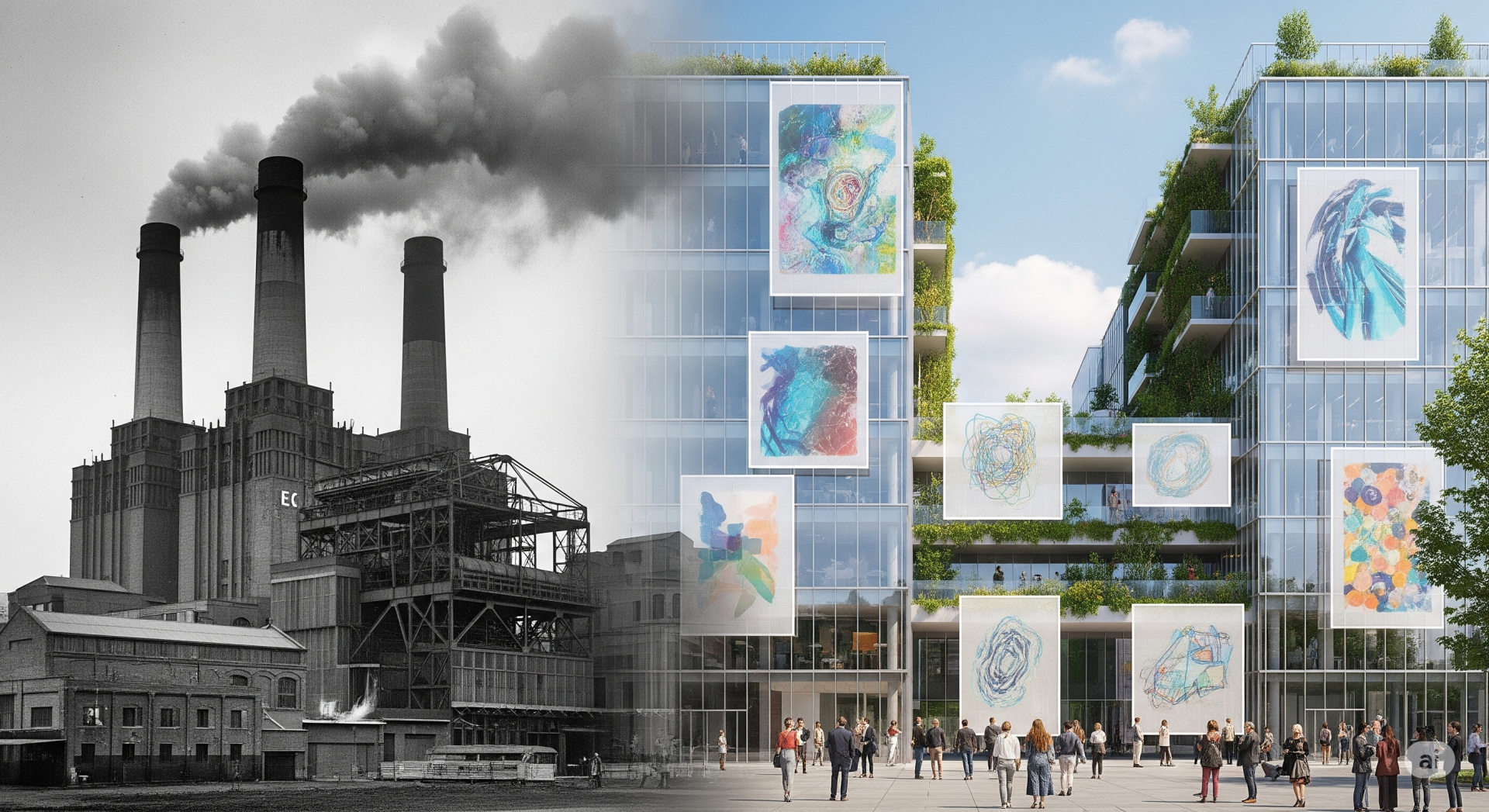


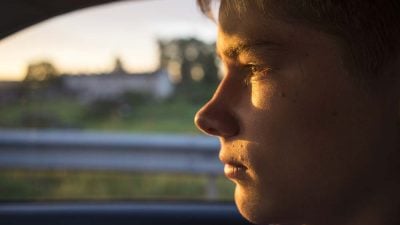


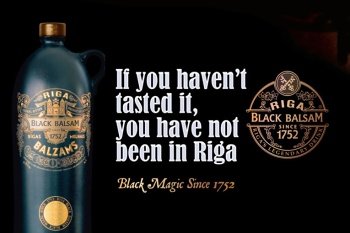
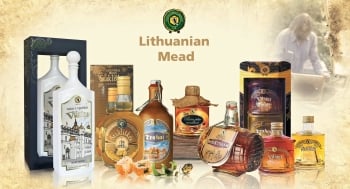
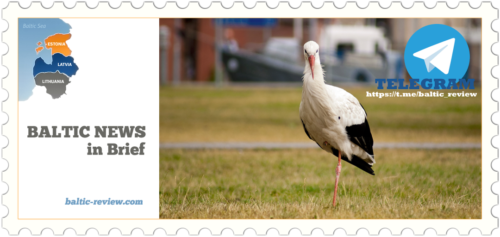

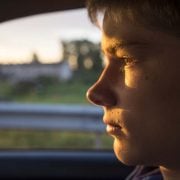
Comments